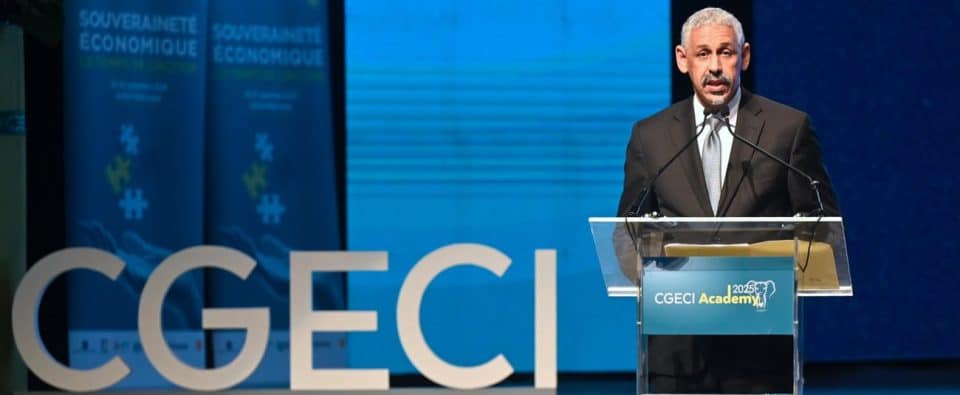Ivorian Prime Minister Robert Mambé and African Development Bank Group President Sidi Ould Tah have called on Africa’s private sector to take a leading role in the continent’s economic transformation. They emphasized that the current disruptions in global trade present more of an opportunity than a challenge.
The 13th edition of the CGECI Academy, Côte d’Ivoire’s employers federation flagship annual forum, focused on the theme “Economic Sovereignty: Time for Action.” The two-day event attracted senior government officials, business leaders, and representatives from regional employers’ organizations.
Prime Minister Mambé stressed the importance of moving from analysis to action. “The time for self-reflection has passed; we need to get down to business now!” he declared. “We must acknowledge our strengths, recognize our weaknesses, and discover our untapped potential. Above all, we need to create a synthesis that consolidates our achievements, paving the way for new opportunities grounded in intelligent and dynamic partnerships.”
He underscored that achieving economic sovereignty calls for a coordinated effort from the government, private investors, young entrepreneurs, and consumers.
Dr. Ould Tah echoed this sentiment, telling the audience that Africa should view current global trade tensions as a “historic opportunity” to strengthen regional value chains and process more of its abundant raw materials within the continent.
“For Africa, this isn’t a threat; it’s a unique chance to build a stronger, more integrated, and resilient local economy,” the Bank President remarked. Dr. Ould Tah, who took office on September 1, outlined his four-pillar strategy for Africa’s development: mobilizing large-scale capital, reforming Africa’s financial architecture, accelerating the creation of quality jobs, and developing climate-resilient infrastructure through green industrialization.
He emphasized that structural economic transformation cannot rely solely on governments. “The private sector must be at the heart of this strategy,” he stated, urging entrepreneurs to innovate and play significant roles in global markets.
The gathering comes at a pivotal moment, as multilateral trade frameworks face increasing pressure from protectionist policies and geopolitical tensions. African leaders view this as a critical time to enhance intra-African commerce and lessen the continent’s dependence on external markets.
Ahmed Cissé, president of CGECI, reaffirmed the private sector’s commitment to supporting continental efforts aimed at restoring economic and financial sovereignty through institutional partnerships, including close collaboration with the African Development Bank.
Representing nearly 80 percent of Côte d’Ivoire’s private sector companies, CGECI has a long-standing partnership with the African Development Bank to promote youth entrepreneurship. Their joint initiative, La finance s’engage (Finance Commits), has mobilized resources for countless Ivorian start-ups since 2016, including a €1.108 million project that has supported 200 young entrepreneurs, nearly a third of whom are women.


